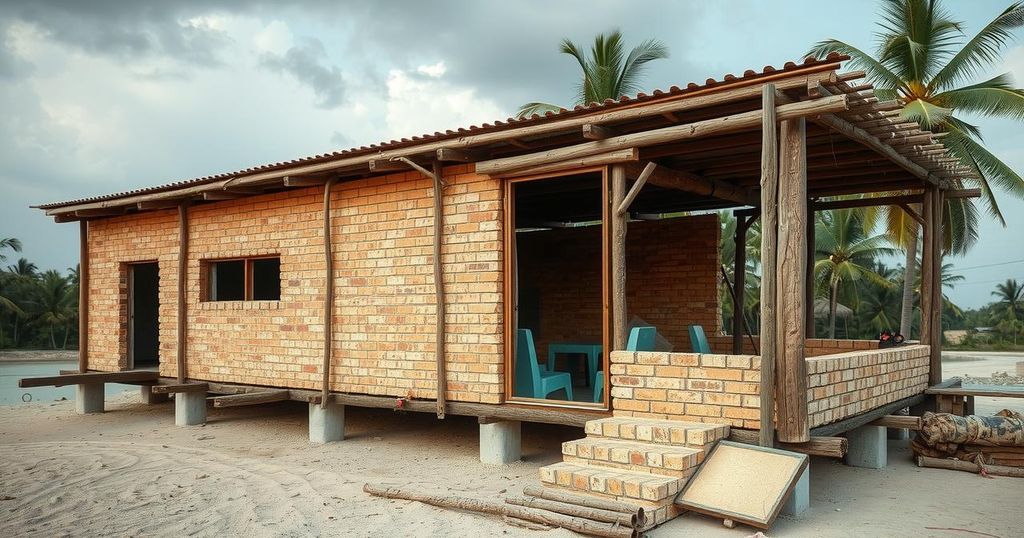Mozambique Commences Construction of Resilient Shelters for Cyclone Chido Victims

Mozambique has started constructing resilient homes for Cyclone Chido victims after the storm caused significant destruction in the northern regions. The cyclone resulted in at least 70 deaths and injured over 600 individuals. The government, along with international partners, aims to improve construction practices to prevent future disasters and address the ongoing humanitarian crisis affecting over 174,000 people.
Mozambique has initiated the construction of new homes for the victims of Cyclone Chido, which recently devastated the northern regions of the country, resulting in at least 70 fatalities and injuring approximately 600 individuals. During a visit to the affected areas, Trade and Industry Minister Silvino Moreno emphasized the government’s commitment to providing support to the victims and thanked international partners for their assistance. The focus is on erecting shelters using resilient materials to prevent future destruction, as many homes in these regions were constructed with mud and reeds and could not withstand the cyclone’s strength.
Prior to impacting Mozambique, Cyclone Chido caused considerable destruction in Mayotte, a French archipelago, leading to extensive damage and increased vulnerability among local communities, including refugees. Additionally, in southern Malawi, powerful winds and rainfall from the cyclone resulted in significant infrastructural damage. Mozambique’s meteorology agency has warned of further storms anticipated during the ongoing rainy season, urging improved readiness within communities.
UNICEF has reported that at least 174,000 people have been affected by the cyclone, with the figure likely to rise as evaluations continue. The cyclone not only devastated numerous homes but also destroyed thousands of classrooms and affected 20 health facilities. Michael Chimedza, head of UNICEF’s field office in Zambezia province, indicated that the agency is mobilizing resources to assist 50,000 affected individuals and has allocated funding for local response training.
The cyclone’s impact extended beyond Nampula, also affecting Cabo Delgado and Niassa provinces, where over 25,000 families experienced electricity outages and damage to vital infrastructure, including health units and water supplies. Aid agencies voiced concerns over a potential worsening of the ongoing cholera outbreak in the region due to the recent destruction.
The recent devastation of Cyclone Chido has raised critical concerns regarding the preparedness of Mozambique to respond to such natural disasters. Many structures in the affected areas were constructed using inadequate materials that were unable to withstand strong storms. The government’s initiative to provide resilient shelter aims to enhance the living conditions for the affected populations while also addressing future disaster preparedness. As international aid continues to flow into the region, the urgency to train local communities in better construction techniques becomes increasingly evident. Additionally, the cyclone’s effects were felt in neighboring regions, leading to cross-border humanitarian challenges.
In summary, Mozambique’s efforts to rebuild following Cyclone Chido highlight the urgent need for improved construction practices and local capacity building to mitigate the impacts of future storms. With significant international support and a focus on resilient infrastructure, the government aims to enhance the safety of vulnerable communities. The ongoing humanitarian crisis, exacerbated by infrastructure damage and the potential for disease outbreaks, necessitates continued attention and coordinated response efforts from local and international partners.
Original Source: www.voanews.com






